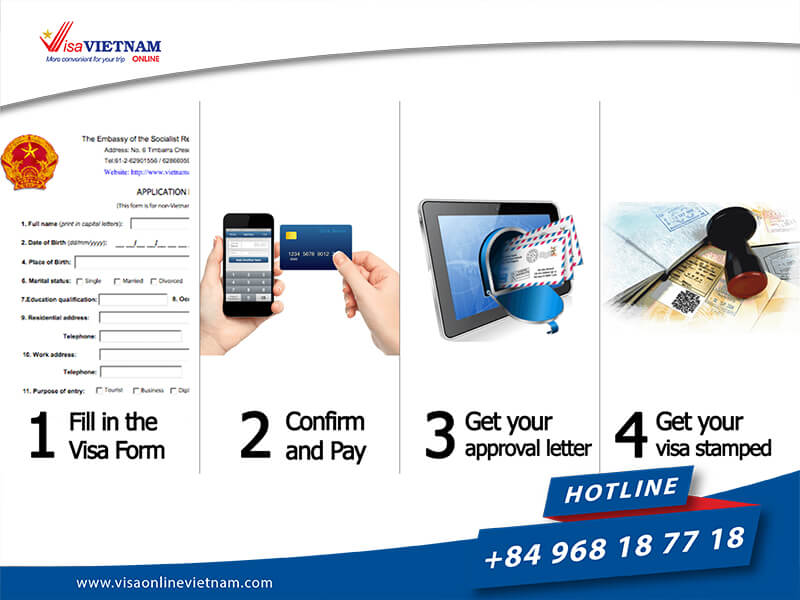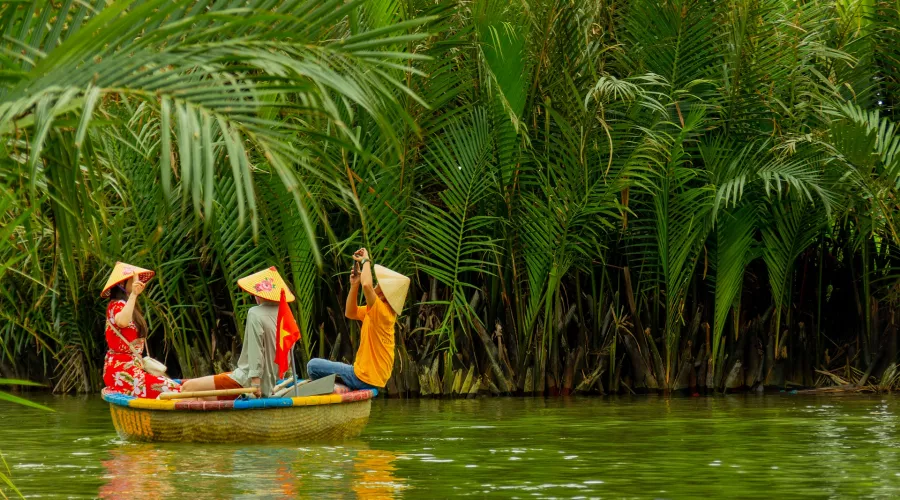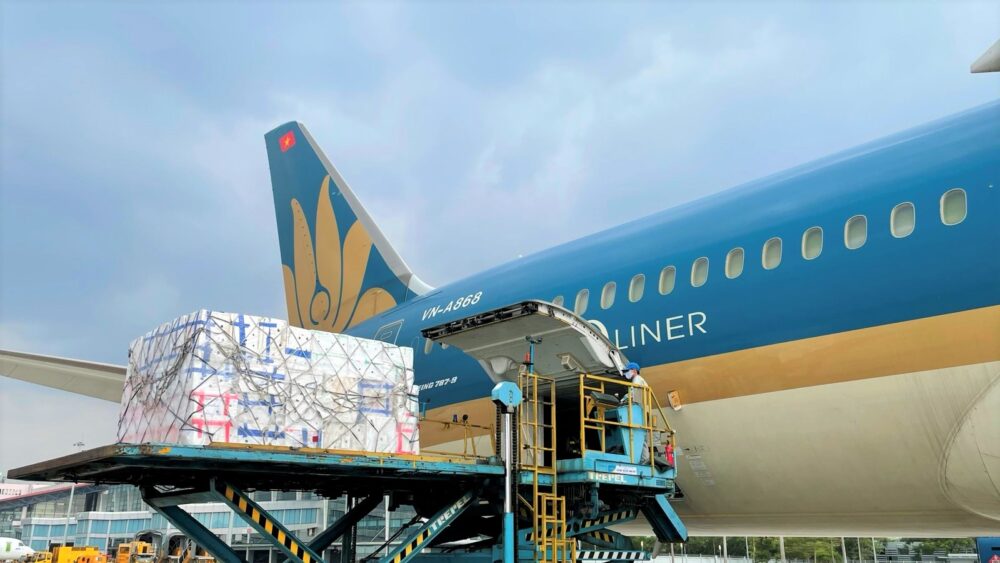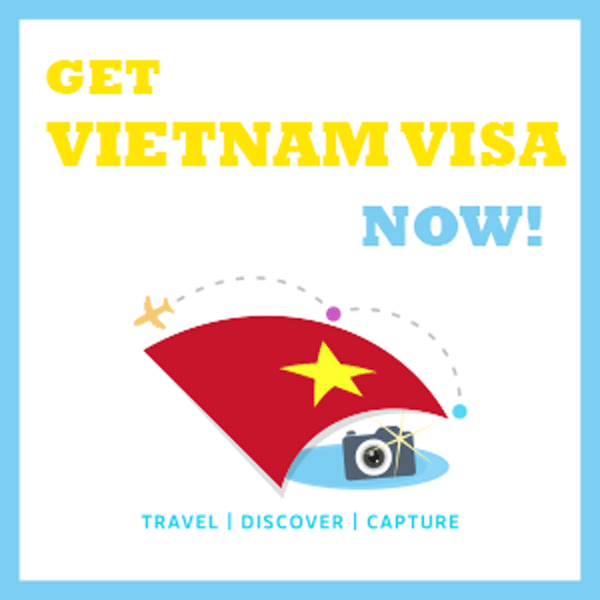This article serves as a comprehensive guide for Mongolian nationals interested in exploring Vietnam as a retirement destination or for extended stays. We delve into the intricacies of Vietnam Retirement Long Stay Visas for Mongolian Nationals, examining the various visa options, the cost of living, healthcare considerations, cultural integration, and the practicalities of finding accommodation. Understanding the process of securing a long-term visa in Vietnam is crucial for anyone planning a significant relocation, and this resource aims to clarify the complexities involved.
Table of Contents
Vietnam Retirement Long Stay Options for Mongolian Nationals: An Overview

Vietnam, with its captivating blend of natural beauty, rich culture, and burgeoning expat community, is increasingly attracting those seeking a fulfilling retirement or extended stay abroad. For Mongolian citizens, this Southeast Asian gem presents an appealing alternative to more traditional retirement havens, offering a compelling combination of affordability, cultural richness, and a welcoming atmosphere. However, understanding the legal framework governing long-term residency is paramount. This section provides a general overview of the options available, setting the stage for a more in-depth exploration of each visa type and the related processes.
Navigating the Vietnamese Visa System
Vietnam’s visa system is multifaceted, and there isn’t a single “retirement visa.” This doesn’t mean retirement in Vietnam is impossible; rather, it necessitates a thorough understanding of the different visa categories and which one best aligns with your individual circumstances. The options available range from short-term tourist visas to those tied to business activities, investments, or family ties. Each visa type has its own specific requirements and limitations, and careful planning is crucial. Improper visa usage can lead to serious complications, so seeking professional advice from an immigration specialist or lawyer is highly recommended.
Assessing Your Personal Circumstances and Goals
Before diving into the specific visa options, it’s vital to carefully consider your personal circumstances and long-term goals. For example, are you planning a purely recreational retirement, or do you have ambitions to work part-time or start a small business? Your financial resources will also determine your eligibility for certain visa categories. If planning on working, understanding Vietnamese employment laws and regulations is essential. Making an informed choice requires honest self-assessment and potentially, professional guidance to ensure the chosen path is compliant and feasible.
Exploring the Various Visa Pathways
The initial steps involve research and self-assessment to determine which visa pathway best suits your situation. This may require consultations with immigration experts or seeking assistance from legal professionals familiar with Vietnamese immigration laws. Exploring the specific requirements for each visa type is a critical component of this process, along with calculating the costs involved, which can differ greatly between visa types and processing times. Accurate self-assessment will not only ensure compliance but also prevent needless delays and expenses.
Vietnam Visa Requirements for Mongolian Retirees: A Comprehensive Guide

Understanding the specific visa requirements for Mongolian retirees seeking to live in Vietnam is crucial. While Vietnam doesn’t have a dedicated retirement visa, several options exist, each with its own set of prerequisites and implications. The appropriate choice depends on your individual circumstances, resources, and plans for your time in Vietnam. This section provides a detailed exploration of readily accessible options.
Tourist Visas (DL): A Short-Term Solution
The most accessible option is the standard tourist visa (DL). It’s relatively straightforward to secure and allows for short stays in Vietnam, usually 30 or 90 days. However, for long-term residents, this necessitates continuous extensions or repeated visa runs (exiting and re-entering Vietnam), making it cumbersome and potentially expensive. It also strictly prohibits employment, significantly impacting long-term financial planning. While useful for initial visits to explore Vietnam, it’s not a sustainable solution for permanent or extended stays.
Business Visas (DN): For Entrepreneurial Spirits
A business visa (DN) offers a lengthier stay but demands a demonstrable business purpose. Sponsorship from a Vietnamese company or being self-employed with a compliant business registration is required. This path is suitable for those planning to establish a business or invest in commercial activities in Vietnam. It’s a more complex process, entailing legal and financial documentation, but it could lead to longer stays than tourist visas and opens up opportunities for income generation within the country.
Investment Visas (DT): A Pathway to Long-Term Residency Through Investment
For those with substantial financial resources, investment visas (DT) present a potential pathway to long-term residency. The specific requirements vary based on the investment amount, but this route generally offers longer validity periods and simplifies the visa renewal process. Navigating the complexities of Vietnamese investment laws and securing appropriate legal counsel are essential components of this venture, ensuring investments comply fully with Vietnamese regulations. Successful investment not only secures a visa but can also create long-term income streams.
Long Stay Visas in Vietnam for Mongolians: Exploring the Possibilities

Securing a long-term visa in Vietnam as a Mongolian national necessitates a careful exploration of the various options and a deep understanding of their respective prerequisites. This section delves deeper into the possibilities of securing a longer stay in Vietnam and the challenges that might arise.
Family Visas (TT): A Route Based on Family Ties
For Mongolians with close family members – spouses, parents, or children – who are Vietnamese citizens or hold permanent residency, a family visa (TT) is a viable pathway. This visa is dependent on the family member providing official documentation and sponsorship. This demonstrates a strong family connection and offers some stability for long-term residency. The requirements include proving the family relationship through official documentation.
Understanding the Limitations of Each Visa Type
Crucially, it’s essential to understand that each visa type has its own inherent limitations. Tourist visas, while easily obtained initially, impose constraints on duration and legal activities. Business and investment visas necessitate substantial financial resources and significant paperwork. Family visas require specific family relationships. A thorough understanding of the limitations of each is essential for realistic planning and to avoid disappointment or legal issues. Careful research and, if needed, consultation with legal immigration experts are vital.
The Importance of Legal Counsel and Due Diligence
Navigating the complexities of Vietnamese immigration law requires thorough research and meticulous attention to detail. Legal professionals specializing in Vietnamese immigration law can provide invaluable guidance, ensuring compliance with all regulations and helping to navigate the sometimes-convoluted processes. Ignoring this step could lead to visa rejection, delays, fines, and other undesirable consequences. Preemptive legal counsel minimizes risks and streamlines the visa application process.
Cost of Living in Vietnam for Mongolian Retirees: A Detailed Breakdown
One of Vietnam’s significant attractions for retirees from many countries, including Mongolia, is its remarkably affordable cost of living. This section breaks down the typical expenses you can anticipate in Vietnam, providing a realistic picture of the financial aspects of retirement.

Accommodation Costs: Renting vs. Buying
Accommodation costs vary significantly depending on location and preferences. Renting an apartment in a major city like Hanoi or Ho Chi Minh City will be more expensive than in smaller towns or rural areas. Buying property might seem like an attractive long-term solution, but careful consideration needs to be given to legal ramifications and real-estate market dynamics. Costs also differ based on the size, furnishing, and amenities of the accommodation.
Food and Groceries: Savoring Affordable Flavors
Food costs are generally very low in Vietnam. Vietnamese cuisine is varied and delicious, with plenty of fresh, seasonal produce available at affordable prices. Eating at local restaurants and markets is far cheaper than dining at Western-style establishments. Moreover, cooking at home is a common practice and results in considerable savings. Understanding local market practices will further enhance savings.
Transportation and Utilities: Keeping Costs Low
Transportation expenses are surprisingly reasonable in Vietnam. Public transportation options such as buses and motorbikes are inexpensive. Utilities including electricity, water, and internet are typically much more affordable compared to prices in many Western countries. This makes daily life relatively cost effective providing you take advantage of local customs and practices.
Healthcare in Vietnam: Accessibility and Options for Mongolian Residents
Healthcare access and affordability are essential components in retirement planning. This section examines the Vietnamese healthcare system’s intricacies, potential challenges, and the options available to Mongolian residents.
Public Healthcare System in Vietnam: An Overview
Vietnam boasts a public healthcare system, with hospitals and clinics available across the country. While accessible, the quality and level of service can vary geographically and between facilities. Language barriers might present challenges, especially in smaller, less internationalized areas. While significantly more affordable than in many Western nations, there are likely to be additional costs beyond those covered by public insurance.
Private Healthcare Options: Quality and Convenience
Private healthcare facilities cater to a growing number of expats and wealthier Vietnamese, offering more modern equipment, bilingual staff, and a broader range of specialist services. These facilities come at a higher cost than public healthcare, but the improved quality and convenience might be worthwhile for some. Costs should be weighed against the overall budget and anticipated medical needs.
Health Insurance Coverage: Protecting Your Finances
Having suitable health insurance is crucial, particularly for retirees. While Vietnam’s public healthcare is relatively affordable, comprehensive private health insurance provides peace of mind, offering coverage for unexpected major medical expenses. A thorough comparison of different insurance providers is likely to result in the most appropriate coverage at the best value.
Integrating into Vietnamese Culture: Tips for Mongolian Retirees
Cultural integration is fundamental to a successful and enriching retirement abroad. This section offers guidance for Mongolian retirees on navigating Vietnamese social norms, customs, and cultural nuances.
Language Learning: Building Bridges
Learning some basic Vietnamese significantly improves interaction with locals and facilitates everyday life. Basic conversational skills can make a big difference in creating deeper cultural bonds and enriching daily interactions. Resources such as language schools, online courses, and language exchange partners can be helpful.
Understanding Social Customs and Etiquette
Understanding social customs and etiquette can prevent misunderstandings and improve interactions with locals. Researching common Vietnamese etiquette will facilitate daily communications and will further enhance integration into the new environment. While similar challenges are present in many cultures, the early effort towards understanding and application are well-rewarded.
Building a Support Network: Connecting with Other Expats
Connecting with other expats or retirees can provide valuable support, friendship, and shared experiences. Online forums, social groups, and community events offer opportunities to find like-minded individuals to build stronger support networks. This helps combat loneliness and offers opportunities to benefit from shared wisdom and collective experiences.
Finding Accommodation in Vietnam: Guidance for Mongolian Long-Stay Visitors
Finding suitable accommodation is paramount for any long-term stay in Vietnam. This section offers practical guidance on navigating the Vietnamese property market and choosing the right place to call home.
Exploring Different Accommodation Options: Apartments, Villas, and More
Vietnam offers a wide range of housing choices. Apartments are common in urban areas, while villas and houses are more typical in rural and suburban settings. The ideal choice is dependent on individual preferences, budget, and desired location. Costs also vary significantly based on location, size, and amenities.
Navigating the Property Market: Agents, Contracts, and Legal Considerations
Dealing with Vietnamese property agents and navigating local lease agreements requires careful attention to detail. Familiarizing oneself with standard real estate practices will help in avoiding costly misunderstandings or legal pitfalls. Professional legal advice is recommended to ensure conformity with local regulations and to ensure appropriate protection of rights.
Location Considerations: Balancing City Life with Tranquility
Choosing a location carefully involves weighing up the tradeoffs between the conveniences of city life and the peace and quiet of rural areas. Urban areas typically offer more amenities and better access to healthcare, although the trade-off is higher rental costs. Rural locations often provide a more tranquil setting but can be more isolated and have fewer easily accessible amenities.
Advantages of Retiring or Staying Long-Term in Vietnam for Mongolians
Vietnam offers a compelling blend of advantages that make it an appealing option for Mongolian nationals seeking retirement or extended stays. This section highlights and further clarifies the key benefits.
An Affordable Paradise: Stretching Your Retirement Budget
Vietnam’s significantly lower cost of living compared to many other countries, including Mongolia, is a key draw. Accommodation, food, transportation, and everyday expenses are surprisingly low, allowing retirees to get far greater value for their money. This allows one to enjoy a comfortable lifestyle without the pressure present in more expensive locations.
A Rich and Diverse Culture: Immersing Yourself in a New World
Vietnam’s vibrant culture, rich history, and stunning natural landscapes provide unique exploration and recreation opportunities. Access to diverse experiences, culinary adventures, and historical landmarks allows for both restful relaxation and intellectually stimulating activities. This enhances the quality of life in a new and culturally significant environment.
A Growing Expat Community: Finding Support and Camaraderie
Vietnam has a steadily growing expat community, providing opportunities to connect with others from similar cultural backgrounds or those also relocating. This alleviates the isolation associated with relocation to a new country and allows for networking, social opportunities, and mutually advantageous support systems.
Conclusion
Planning a retirement or extended stay in Vietnam as a Mongolian national requires detailed planning and a thorough understanding of the relevant visa options, procedures, and regulations. While Vietnam presently does not offer a dedicated retirement visa, there are still several suitable solutions depending on individual circumstances and goals. Thorough research and seeking professional legal advice is highly recommended in minimizing risks, navigating the complexities of Vietnamese immigration law, and ensuring a smooth transition to this exciting new chapter. Remember that careful planning and a realistic assessment of personal resources and long-term goals are essential ingredients for a successful move and a fulfilling experience.
Welcome to VietnamEmbassy-Mongolia.org, your trusted online source for updated information about Vietnam visa services, travel requirements, and embassy-related support tailored specifically for Mongolian citizens and residents.
As a dedicated visa consultancy service, we are not the official government website, but we work closely with licensed agencies and the Vietnam Immigration Department to ensure all visa applications are processed safely, transparently, and on time. We specialize in handling:
Tourist, Business, and Work Visas to Vietnam
Emergency and Urgent Vietnam e-Visas (delivered within 1–3 working days)
Student Visas and Immigration Guidance
Embassy locations, working hours, and contact support
With more than 20 years of experience and over 5 million satisfied clients globally, we pride ourselves on delivering fast, reliable, and personalized visa support for travelers from Mongolia and beyond.
Contact Us:
📧 Email: [email protected]
📲 WhatsApp: (+84) 968 18 77 18
📞 USA Hotline: +1(972)-666-0676
🌐 Website: https://visaonlinevietnam.com





